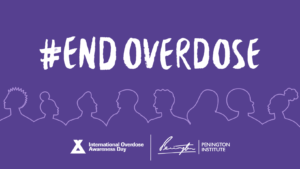Navigating Love and Healthy Relationships in Early Recovery
When a person is in active addiction and early recovery, it is not uncommon for them to be involved in unhealthy relationship patterns and dysfunctional relationships. Toxic relationships can create negative thought patterns that create challenges for a person in early recovery that could potentially lead to a re-occurrence (relapse). Stress caused from being in a relationship can stir up negative emotions and can affect a person’s self-esteem, and these emotions can put a person at high risk.
Developing new relationships during early recovery is a common occurrence. Many connections with peers can enrich a person’s recovery journey, however, a new romantic relationship is often distracting to the persons recovery. Romantic relationships may take attention away from the important task of self-discovery and their newly sober identity. Rushing into dating could replace past addictive behaviors with a focus on the new person in their life rather than focusing on themselves.

It’s recommended that people in early recovery prioritize their focus on themselves and should consider waiting a minimum of one year before entering into a new romantic relationship because dating can boost a person’s self-esteem, and a break-up can seriously affect their mental well-being and their recovery. Rejection by a romantic partner can feel devastating and if they’re already experiencing mental health issues, their mental health symptoms could intensify.
During their first year of sobriety, people have the chance to work on developing their sense of identity and building their self-esteem. The first year of recovery people often learn better coping skills along with gaining an understanding of how to maintain their emotional stability.

When they learn to love themselves, they can be open to loving another person in a healthy way.
The first relationship a person should have in early recovery is with themselves. They should focus on their physical and emotional well-being, let self-love be their starting point. Recovery is an opportunity for people in early recovery to rediscover and nurture a positive relationship with themselves so that in time, they will be able to move forward with healthy interactions with others. When a person prioritizes their own healing and growth, it offers them emotional and mental stability before diving into a new relationship.
If someone enters their life whom they feel they cannot live without, it’s crucial to grasp the principles of safe dating. This knowledge safeguards their self-esteem, self-worth, and self-respect from potential harm.
When the right person comes along they should make sure that their values match or are at least similar. Having a healthy partner means having respect for each other, trust for each other and support for each other.

It’s important that a person in early recovery chooses someone who appreciates their journey, who understands the importance of recovery and who encourages their growth.
Communication is also a key to a successful relationship. It’s important to be open and honest about their recovery, their challenges, their goals and their values. Honest conversations create an environment of trust and understanding. Partners who can openly communicate are better equipped to navigate the ups and downs of recovery together, while strengthening their connection and building a sense of togetherness.
Trust is the glue that holds relationships together. Both partners need to be trustworthy and transparent, understanding that trust is earned over time. Building trust means to be reliable and honest. Setting healthy boundaries means communicating their needs, respecting their partners boundaries and creating a space where both individuals feel safe and comfortable. Boundaries act as a safeguard, ensuring that the relationship remains supportive, kind and loving.
Respecting each-others journey is crucial in how they support each other, recognizing the importance of personal growth and allowing space for themselves and their partner to do so.
A healthy intimate relationship puts the emotional well-being of both partners first. Emotional well-being is the heartbeat of a healthy relationship because when individuals feel emotionally fulfilled, the connection between them deepens and their love grows.
Recovery is a shared journey and seeking support together strengthens the relationship. Attending support groups, counseling or sober actives promotes doing things together as a team and allies while navigating the challenges of recovery hand in hand.
Getting love right in recovery involves making good choices that put both people’s well-being, growth and mutual respect as a priority. It’s about creating a space where both individuals can thrive individually and as a couple. By embracing self-love, choosing healthy partners, having open and honest conversations and respecting each other’s journey, can create a fulfilling and lasting relationship.



